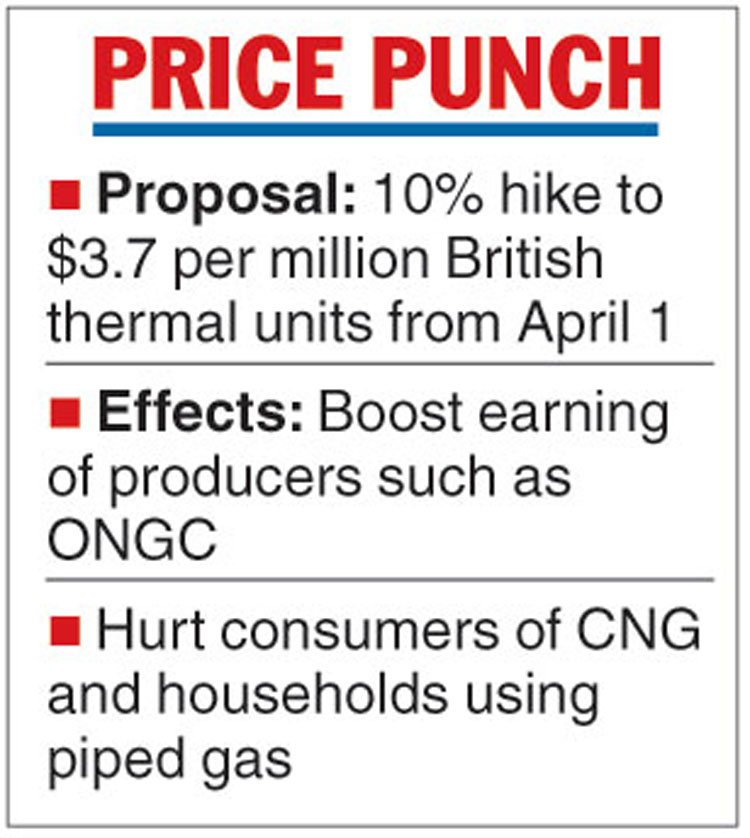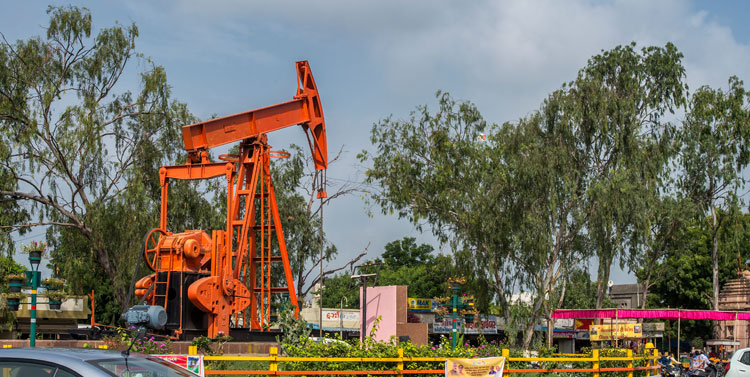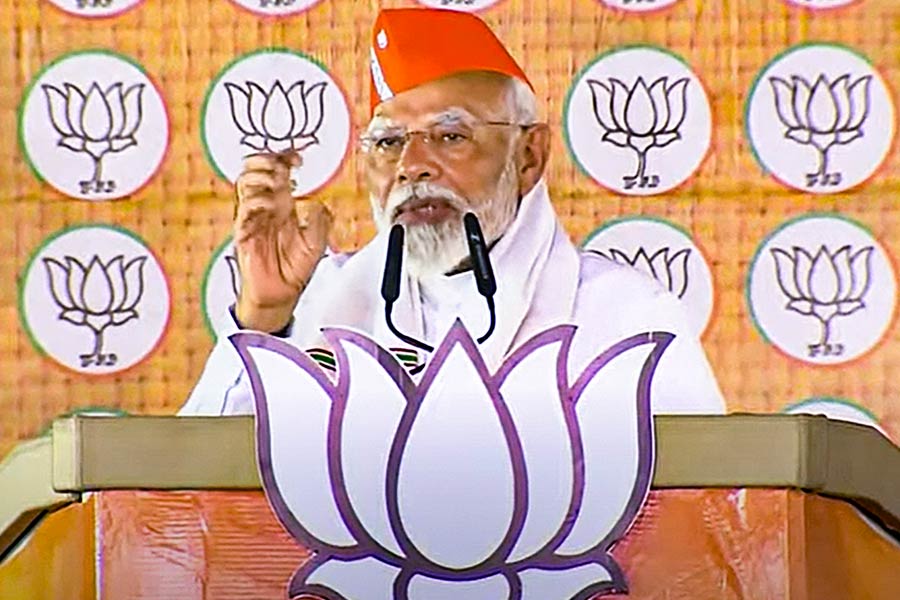The domestic natural gas price in the country is likely to be hiked over 10 per cent to $3.7 per million British thermal units (mBtu) from April 1 following a spike in prices in the global gas hubs.
The move is likely to boost the earning of producers such as ONGC but hurt the consumers of CNG and households using piped gas.
Natural gas prices were last hiked on October 1, 2018 by 10 per cent when rates moved up to $3.36 per mBtu from $3.06. This will be the fourth straight increase in gas prices.
Oil industry officials said the price of gas produced from difficult fields will also rise to about $9 per million British thermal unit (mBtu) from the current $7.67.
The $3.72 per mBtu price will be the highest since the rate set for the October 2015-March 2016 period.

Source: The Telegraph
Natural gas prices are revised every six months — on April 1 and October 1 every year — based on average rates in gas-surplus nations such as the US, Russia and Canada.
The rate is calculated by taking a weighted average price at Henry Hub of the US, National Balancing Point of the UK, rates in Alberta (Canada) and Russia with a lag of one quarter.
So for the April 1 to September 30 period, the average rates prevailing between January 1, 2018 and December 1, 2018 would be taken.
Sources said, the rates for 2018 are known and, based on it, the hike from April 1 comes to 10 per cent.
The increase in price will boost earnings of producers such as ONGC but will also lead to a rise in prices of CNG, which uses natural gas as input. It would also lead to the higher cost of natural gas piped to households for cooking purposes as well as of feedstock cost for manufacturing of fertilisers and petrochemicals.
Fertiliser and power companies also import LNG (liquefied natural gas) in addition to buying the domestic gas and pool the prices to calculate their overall costs.










